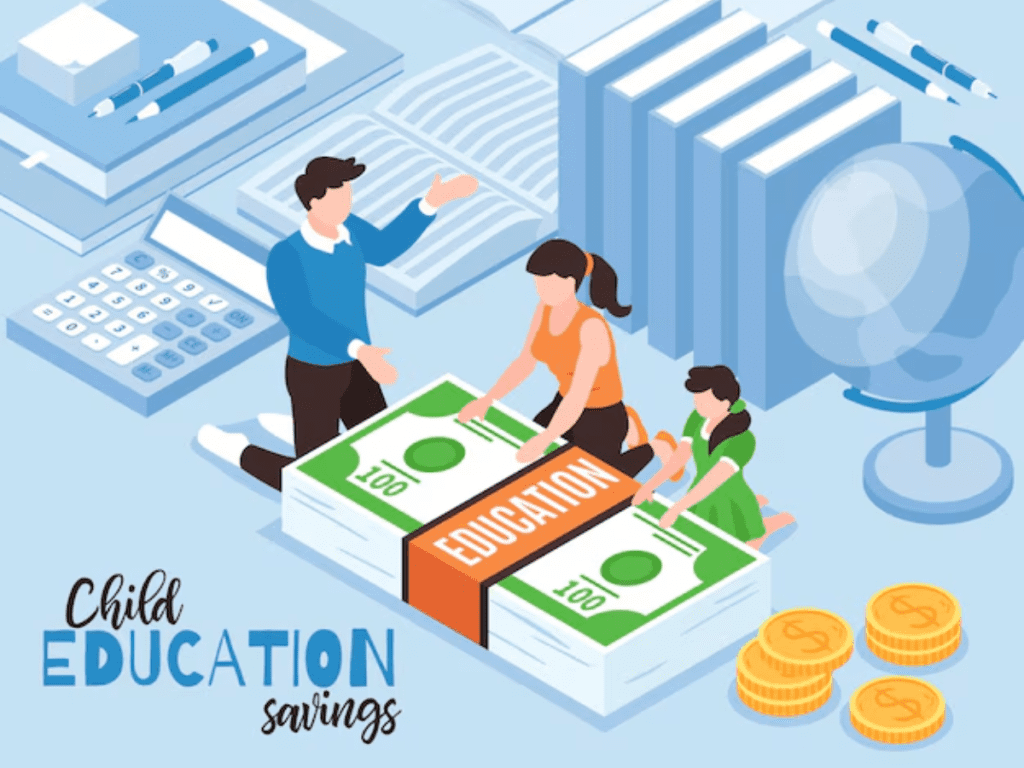Introduction
Student loans are one of the most significant financial commitments a person can make during their educational journey. While they provide essential funding for tuition fees and living expenses, they also play a major role in shaping an individual’s financial future. One of the most important aspects to consider is how student loans impact your credit score.
A credit score is a three-digit rating awarded to lenders to assess an individual’s creditworthiness. It determines loan approvals and interest rates, rental applications, and even job prospects. Knowledge of the connection between student loans and credit scores will enable borrowers to make better financial decisions.
This in-depth guide will examine the effect of student loans on credit scores, how credit ratings are determined, and the most effective methods of responsible student loan management.
How Student Loans Affect Your Credit Score
Credit scores are calculated based on several factors, such as payment history, credit utilization, credit history length, new credit inquiries, and credit types used. Student loans can positively or negatively impact these factors.
1. Payment History and Its Impact on Credit Score
Payment history is the key to determining a credit score and contributes about thirty five percent to the overall score. On-time payments on student loans can have a favorable effect on the credit history of a borrower. Consistent, timely payments reflect responsibility and contribute towards a healthy credit history.
But, failing to pay or late payment can substantially hurt the credit score. When a student loan payment is thirty days past due, lenders report it to credit bureaus and the credit score declines. With the longer delay, the greater the adverse effect. When a loan is delinquent or defaults, the effects are far worse.
To prevent such problems, the borrowers should initiate automatic payments or reminders to guarantee that all payments are completed within time.
2. How Late or Missed Payments Can Lower Your Credit Score
Late or missed payments have severe implications. When a borrower misses student loan payments, lenders report the delinquency to credit bureaus. The longer the delay, the greater the harm to the credit score. If a borrower repeatedly misses payments, the loan can be declared delinquent or even defaulted.
A delinquent loan will stay on a credit report for seven years, which will make it hard to get future credit. Being in default on a student loan can also result in legal action, wage garnishment, and trouble getting housing or a job.
To avoid late payments, borrowers can:
- Enroll in automatic payments with their lender
- Utilize budgeting tools or apps to monitor due dates
- Create calendar reminders for payment due dates
3. The Role of Credit History Length in Credit Score Calculation
The credit history length is yet another important variable used to compute credit scores and contributes about fifteen percent to the overall score. Because student loans are long-term obligations that most often take years to complete, they contribute towards building a more extended credit history, which works in favor in the long term.
Even after paying off a student loan, leaving the account open and in a positive standing can benefit a borrower’s credit history. The longer credit history with a good payment track record tells lenders that the borrower is creditworthy.
4. The Role of Credit Mix in Having a Strong Credit Profile
A good credit history contains a variety of types of credit, including installment loans and revolving credit. Credit scoring models, including FICO and VantageScore, take into account credit mix when determining a credit score.
Student loans fall under installment credit, meaning they have fixed monthly payments over a specified period. Having a mix of installment credit, such as student loans, auto loans, or mortgages, along with revolving credit, such as credit cards, can improve a borrower’s credit score.
Having a good credit mix indicates to lenders that the borrower is able to manage various forms of debt in a responsible manner. Borrowers should not be taking on extraneous debt solely to enhance their credit mix, though.
5. How Applying for New Student Loans or Refinancing Impacts Credit Score
When a student applies for a student loan or refinance of a current loan, lenders issue a credit inquiry to determine how creditworthy a borrower is. The inquiry would be referred to as a hard credit check that may drop the credit score slightly for a limited period.
If a borrower applies for multiple loans or refinances within a short period, the impact on their credit score may be greater. However, credit scoring models typically treat multiple loan inquiries within a short timeframe as a single inquiry, minimizing the negative effect.
To avoid unnecessary damage to a credit score, borrowers should:
- Shop for loan offers in a short span to reduce multiple credit inquiries
- Verify prequalification alternatives that do soft credit checks prior to applying
- Refinance only if it saves substantially on interest and monthly payments
How to Manage Student Loans Wisely
Managing student loans responsibly can help borrowers maintain a strong credit score and avoid financial difficulties. The following strategies can ensure smooth repayment and financial stability.
1. Making Timely Payments to Maintain a Good Credit Score
The best method to pay off student loans is through on-time monthly payments. Delayed payments not only incur fees and extra interest rates but also hurt credit scores. Student loan payments must be given top priority in monthly budgets so that not a single due date is missed.
2. Investigating Income-Driven Repayment Plans for Financial Flexibility
For those who are having a hard time making payments, income-driven repayment plans are a good alternative. These plans modify payments on a monthly basis depending on income and family size, rendering them easier.
Some common income-driven plans include:
- Income-Based Repayment
- Pay As You Earn
- Revised Pay As You Earn
Signing up for an income-driven repayment plan can avoid late payments and credit harm while offering financial relief.
3. Paying Extra to Pay Off Loan Balance Sooner
If feasible, borrowers can make extra payments on their student loans. Exceeding the monthly payment amount reduces the principal balance, resulting in lower interest charges and quicker debt repayment.
Before proceeding to make extra payments, the borrower must contact their lender to be assured that the excess payment would be directed into the principal instead of upcoming interest.
4. Student Loan Refinancing or Consolidation for Better Terms
The borrower who takes high-interest loans can enjoy benefits from loan refinance or consolidation. Borrowing through refinancing enables a consumer to achieve lower interest rates as well as superior repayment terms for the total reduced cost of borrowing.
Nonetheless, refinancing federal student loans to private loans can cost federal benefits, including income-driven repayment plans and loan forgiveness programs. Borrowers should weigh their options carefully before refinancing.
5. Steer Clear of Common Errors That Can Damage Credit Score
Most borrowers do something wrong that adversely affects their credit scores. The common errors to avoid include:
- Forgetting student loans and not paying them
- Taking out too much money
- Failing to know the terms of loans and repayment options
- Letting loans become delinquent or go into default
Long-Term Effects of Student Loans on Financial Health
Student loans affect credit scores not only in the short run but also have long-term implications for overall financial health. Students need to think about how student loans will shape future financial choices, including buying a house, saving for retirement, and becoming financially independent.
1. Student Loans and Homeownership
Most borrowers postpone homeownership because of the weight of student loan debt. A lender takes into consideration an individual’s debt-to-income ratio (DTI) when processing mortgage applications. A high DTI, which happens when student loan payments consume a substantial amount of monthly income, could hinder a person from being eligible for a mortgage.
Good student loan management can, however, enhance financial status, and homeownership can become more attainable. Borrowers can:
- Lower their DTI by paying extra on student loans
- Enhance their credit score by having a good payment history
- Investigate loan forgiveness or income-driven repayment plans to reduce monthly debt payments
2. Student Loans and Retirement Savings
Another long-term effect of student loans is that they affect retirement savings. Most borrowers focus more on paying loans than on contributing to retirement plans, which pushes them back to accumulate wealth.
To maintain a balance between student loan repayment and retirement saving, borrowers can:
- Pay at least the minimum into employer-sponsored retirement accounts, like a 401(k), particularly if there is a company match
- Invest additional money in both retirement savings and student loan repayment, as opposed to strict debt repayment
- Refinance to take advantage of lower monthly payments to invest more money in investment opportunities
3. Student Loans and Career Opportunities
Certain borrowers perceive themselves as constrained in their career choices because of student loan responsibilities. Large monthly payments could discourage people from pursuing lower-salary careers in education, social work, or nonprofit organizations.
But, certain public service careers are eligible for student loan forgiveness initiatives, including Public Service Loan Forgiveness (PSLF). Borrowers in qualifying occupations can have their outstanding loan balance forgiven after 120 qualifying payments. Knowing available forgiveness programs can assist borrowers in making career choices according to their financial objectives.
Conclusion
Student loans leave a permanent footprint on a borrower’s financial life, impacting their credit score, debt-to-income ratio, and overall financial well-being. Student loan management is vital to having a good credit score and enjoying long-term financial success.
By paying on time, investigating income-driven repayment options, refinancing as needed, and steering clear of financial missteps, borrowers can manage their student loans successfully. A pre-emptive strategy for managing student loans can help in ensuring a trouble-free repayment experience and leading to a financially stable future.

